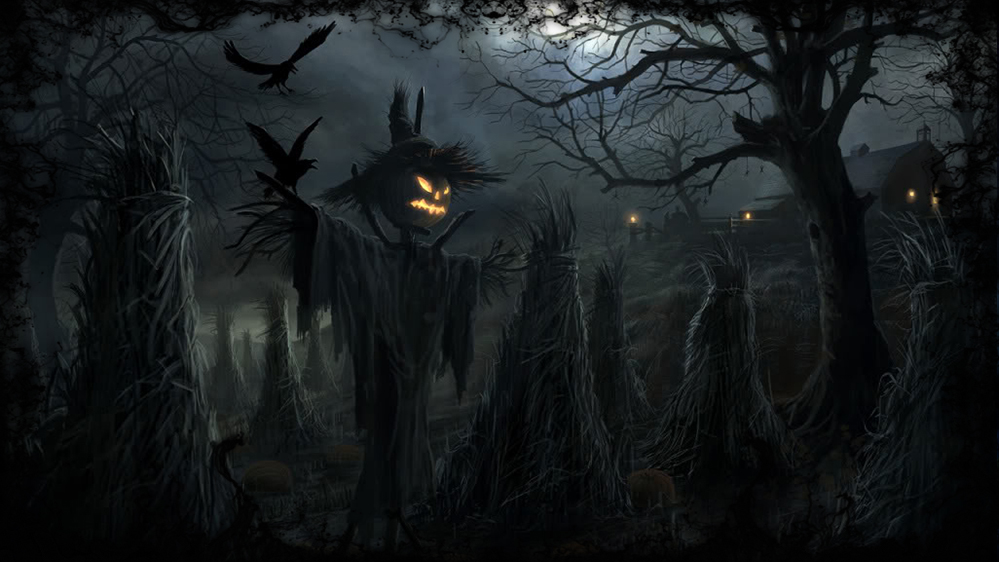
Bring out your pumpkins! Halloween or All Hallows’ Eve is upon us! Great joy, the one day in the year I don’t have to defend the skulls, dragons and dark art in my house. It’s even ok (or at least it was, not sure what the morale police have to say about it these days) to scare people senseless 😉
I can even hold off another day to wash away the blood on the cellar floor…ups, to much info…
Ancient Origins of Halloween
Celts believed that on the night before the new year, the boundary between the worlds of the living and the dead became blurred. On the night of October 31 they celebrated Samhain, when it was believed that the ghosts of the dead returned to earth.
Halloween or Hallowe’en (less commonly known as Allhalloween, All Hallows’ Eve, or All Saints’ Eve) is a celebration observed in many countries on 31 October, the eve of the Western Christian feast of All Hallows’ Day. It begins the observance of Allhallowtide, the time in the liturgical year dedicated to remembering the dead, including saints (hallows), martyrs, and all the departed.
The theory holds that many Halloween traditions were influenced by Celtic harvest festivals, particularly the Gaelic festival Samhain, which are believed to have pagan roots. Some go further and suggest that Samhain may have been Christianized as All Hallow’s Day, along with its eve, by the early Church. Other academics believe Halloween began solely as a Christian holiday, being the vigil of All Hallow’s Day. Celebrated in Ireland and Scotland for centuries, Irish and Scottish immigrants took many Halloween customs to North America in the 19th century, and then through American influence Halloween had spread to other countries by the late 20th and early 21st century.

So how do the religions around the world celebrate All Hallows Eve?
Judaism
According to Alfred J. Kolatch in the Second Jewish Book of Why, in Judaism, Halloween is not permitted by Jewish Halakha because it violates Leviticus 18:3, which forbids Jews from partaking in gentile customs. Many Jews observe Yizkor communally four times a year, which is vaguely similar to the observance of Allhallowtide in Christianity, in the sense that prayers are said for both “martyrs and for one’s own family”. Nevertheless, many American Jews celebrate Halloween, disconnected from its Christian origins.Reform Rabbi Jeffrey Goldwasser has said that “There is no religious reason why contemporary Jews should not celebrate Halloween” while Orthodox Rabbi Michael Broyde has argued against Jews’ observing the holiday.Purim has sometimes been compared to Halloween, in part due to some observants wearing costumes, especially of Biblical figures described in the Purim narrative.
Islam
Sheikh Idris Palmer, author of A Brief Illustrated Guide to Understanding Islam, has ruled that Muslims should not participate in Halloween, stating that “participation in Halloween is worse than participation in Christmas, Easter, … it is more sinful than congratulating the Christians for their prostration to the crucifix”. It has also been ruled to be haram by the National Fatwa Council of Malaysia because of its alleged pagan roots stating “Halloween is celebrated using a humorous theme mixed with horror to entertain and resist the spirit of death that influence humans”. Dar Al-Ifta Al-Missriyyah disagrees provided the celebration is not referred to as an ‘eid’ and that behavior remains in line with Islamic principles.
Hinduism
Hindus remember the dead during the festival of Pitru Paksha, during which Hindus pay homage to and perform a ceremony “to keep the souls of their ancestors at rest”. It is celebrated in the Hindu month of Bhadrapada, usually in mid-September. The celebration of the Hindu festival Diwali sometimes conflicts with the date of Halloween; but some Hindus choose to participate in the popular customs of Halloween. Other Hindus, such as Soumya Dasgupta, have opposed the celebration on the grounds that Western holidays like Halloween have “begun to adversely affect our indigenous festivals”.
Neopaganism
There is no consistent rule or view on Halloween amongst those who describe themselves as Neopagans or Wiccans. Some Neopagans do not observe Halloween, but instead observe Samhain on 1 November, some neopagans do enjoy Halloween festivities, stating that one can observe both “the solemnity of Samhain in addition to the fun of Halloween”. Some neopagans are opposed to the celebration of Hallowe’en, stating that it “trivializes Samhain”, and “avoid Halloween, because of the interruptions from trick or treaters”. The Manitoban writes that “Wiccans don’t officially celebrate Halloween, despite the fact that 31 Oct. will still have a star beside it in any good Wiccan’s day planner. Starting at sundown, Wiccans celebrate a holiday known as Samhain. Samhain actually comes from old Celtic traditions and is not exclusive to Neopagan religions like Wicca. While the traditions of this holiday originate in Celtic countries, modern day Wiccans don’t try to historically replicate Samhain celebrations. Some traditional Samhain rituals are still practised, but at its core, the period is treated as a time to celebrate darkness and the dead – a possible reason why Samhain can be confused with Halloween celebrations.”
Right. Let Helloween end this post with the song “Halloween”
HAPPY ALL HALLOWS’ EVE EVERYONE!
